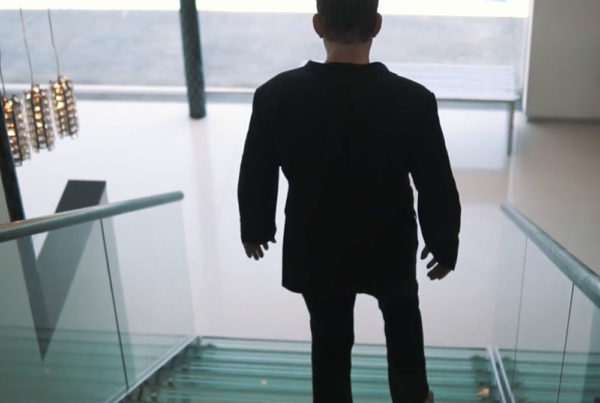Many times we get so caught up in our day-to-day responsibilities that we forget the importance of greater awareness for both ourselves and others. By increasing awareness of the wants and needs of others, not just ourselves, we give ourselves the power to build permanent relationships for a lifetime of mutual collaboration and success.
Empathy is imperative, and goes way further when you genuinely care about people. Real empathy is letting our co-workers and customers know that we see their side of the fence and not just what’s on our side. People look for images, words, problems and solutions they have a commonality with. Now more than ever, awareness is crucial to business processes and systematic exchanges that can quickly bring a relationship together. If we have to think too much in order to understand and or be understood, then our barriers will be very hard to break through.
If you feel you’re exhausted by those that could be labeled “energy zappers”, then know that you could also be an “energy zapper” in your own mind. Let’s look at the following ideas to reduce miscommunication and/or barriers that could be holding you back.
- Use Face-to-Face Interactions When Possible.
If you are not talking in person with others, the distance often results in misunderstandings that lead to confusion or anger. Emails lacking emotion and contextual clues widen the awareness gap. If the email recipient misinterprets instructions or details, you could be held accountable for ensuing problems. Another issue with email is a lack of empathy and appreciation for others. It is easy to send an angry or irritated email in a moment of frustration. Talking in person forces you to take the other person’s feelings into account before responding. By speaking face-to-face, you get additional contextual clues from body language. Respect comes more naturally when you understand someone’s intentions. While face-to-face interactions are not always possible, try to avoid emails when delivering complex messages, opting for video chats or phone calls instead.
- Be More Self-Aware
Pay attention to how your words and actions affect others. Every person has a different style of communication, and not understanding how others interpret your style can cause awareness breakdowns. How you say something versus how people hear it are often two different sentiments. Take the time to explain your position and feelings fully so as to put everyone on the same page and prevent confrontations. Self-awareness is a proactive shortcut to clearer awareness of others. You cannot change the way people perceive you, but taking the time to recognize reactions to your style of interaction will greatly help to increase your awareness level.
- Admit that You May Not Always Know Best
Demonstrating leadership can set you up for success, but if you are leading in the wrong direction, your success will not last. When given a chance to lead, willingly listen to your teammates and consider every opinion before acting. Admitting that you may not know best is a sign of a great leader, and tells others that you consider collaboration to be a two-way street. Allowing everyone to contribute shows respect and prevents the “my way or the highway” attitude that causes friction.
- Appreciate Individuality
When working as a group, everyone brings unique skills to the team. Teamwork lets people build on each other’s strengths while simultaneously learning more about potential weaknesses and areas for improvement. Appreciate people’s strengths and recognize that these skills make them a valuable member of the team. When you respect others, you display an attitude of acceptance and improve overall awareness.
- Encourage Collaboration
Collaborating on projects highlights the importance of overall awareness. If your team suffers from an awareness breakdown, the project will fail. Let teammates know that they can come to you for help at any time. Awareness builds a stronger team that feels comfortable relying on each other in stressful situations. Working together keeps people from feeling overwhelmed and alone. Perfect your awareness skills by practicing face-to-face communication, sharing your ideas with others, and being open about your mistakes and shortcomings. Interpersonal awareness skills take some time and practice to master, but they will help to create more permanent personal bonds between yourself and the others around you.
– Tim S. Marshall, Author of “The Power of Breaking Fear”
Click Here to Download “The Power of Breaking Fear” audiobook!
Some reviews of “The Power of Breaking Fear”:
“The Power of Breaking Fear”
“Tim S. Marshall has gone out of his way to arm his readers with a seemingly endless number of vitality strategies that are easy to incorporate into one’s daily life. The Power of Breaking Fear belongs on every bookshelf.”
– U.S Review
•••
– Independent Press Award (IPA)
“The Power of Breaking Fear” winner for Best Audio and book Content!
•••
“The Power of Breaking Fear” is a must-read for anyone who is frustrated in life, and wants to achieve true long-lasting success and happiness.”
-Paul Noble, 5-Time Emmy Award Winner
•••
“The Power of Breaking Fear” is one of the most fascinating books I have seen. A fresh new look to end the fears that hold us back from true success.”
– Kenneth Blanchard, #1 Best-Selling Author of The One Minute Manager, 13-million copies sold.




